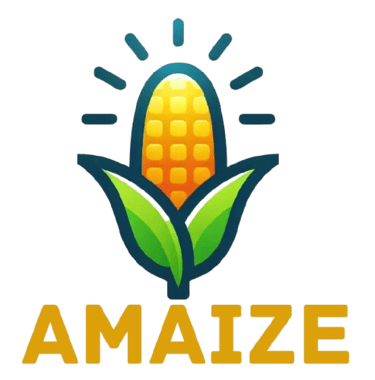SCIENTIFICALLY VALIDATED PERFORMANCE
Our solutions have undergone rigorous third-party verification across laboratory and multi-location field trials, demonstrating consistent, replicable success


NUTRITIONAL SUPERIORITY (Per 100g dry weight)
Niacin: 337% increase (1.82g → 7.96g)
Protein: 400% increase (2.1g → 8.4g)
Carbohydrates: 374% increase (12g → 45g)
Fats: 257% increase (0.7g → 1.8g)
Nutritional analyses conducted in November 2018 by the International Crops Research Institute for the Semi-Arid Tropics (ICRISAT)—a UN and FAO-chartered international agricultural research organization—demonstrated significant increases in nutrient density, with Niacin, Protein, Carbohydrates, and Fats showing percentage gains of 337%, 400%, 374%, and 257% respectively.
Comparable enhancements were independently validated in 2014 by Nestlé-Purina Analytical Laboratories, St. Louis, Missouri, following similar seed and soil treatments.
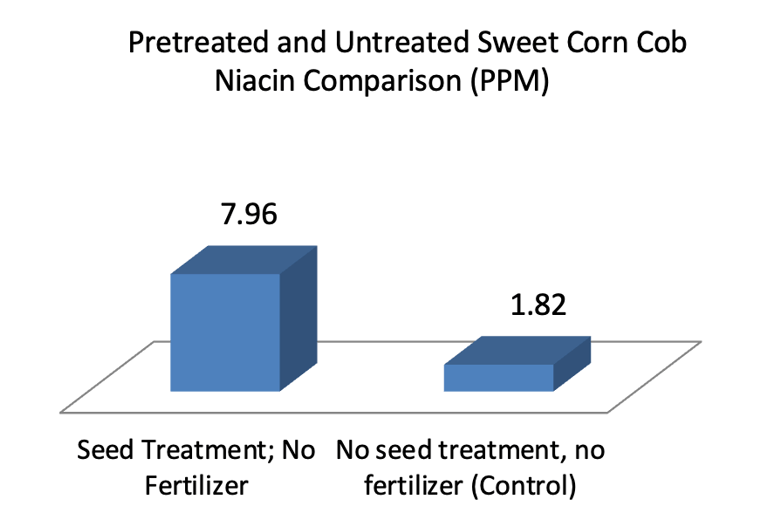

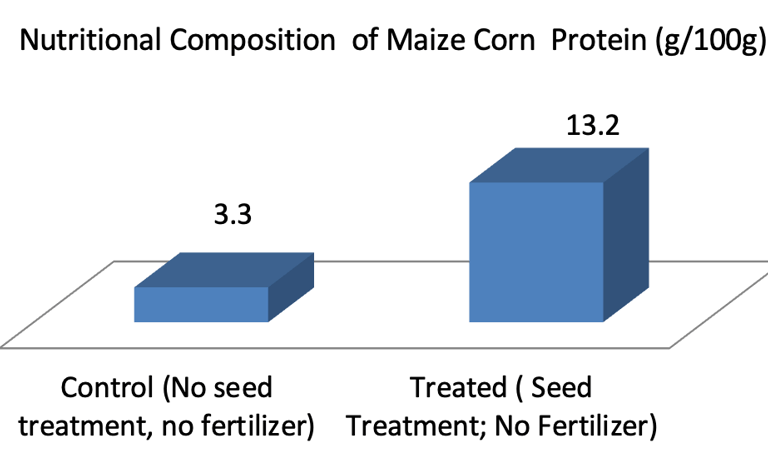

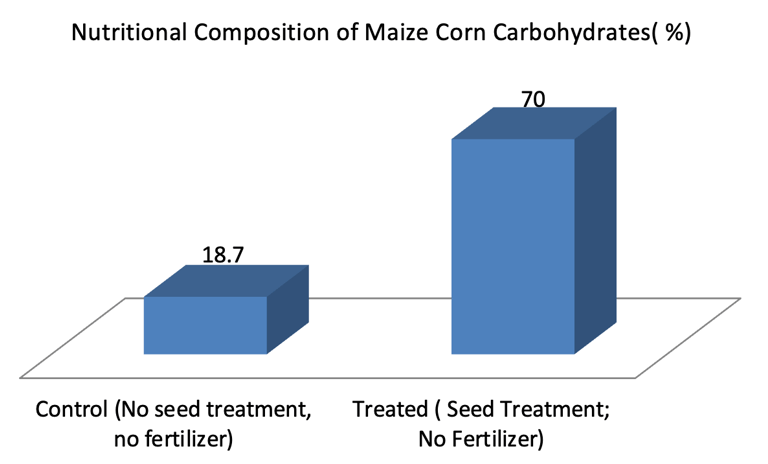

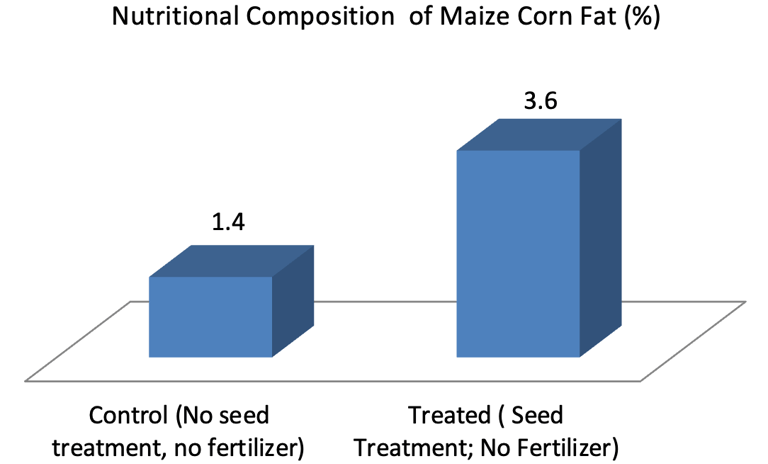



Scientific Field Trial: AMAIZE Technology Validation
Tamil Nadu, India | July–October 2018
METHODOLOGY
1. Trial Design
Test Farm: AMAIZE-treated (5 proprietary treatments)
Control Farm: Conventional practices (100% chemical inputs)
Duration: 120 days (full crop cycle)
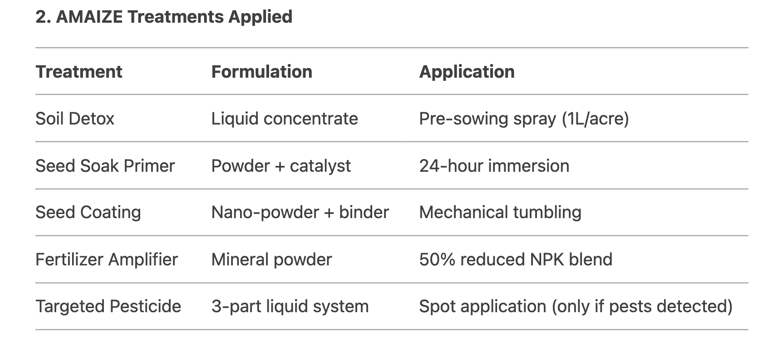

3. Key Variables Controlled
Identical soil type, irrigation, and climate conditions
Zero synthetic pesticides/ herbicides used in AMAIZE plot
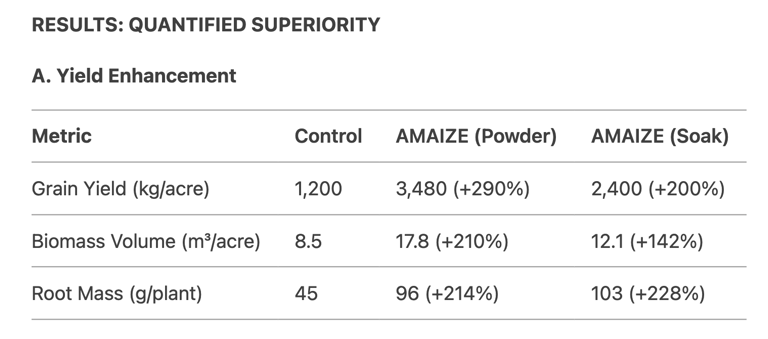

B. Operational Efficiency
Maturity: AMAIZE harvest at Week 10 vs. Control (Week 14)
Input Savings: 80% reduction in fertilizers + 100% pesticide-free
Soil Health: Darker color (↑ microbial activity, ↑ water retention)
C. Quality Parameters
Taste: AMAIZE kernels rated "softer/sweeter" in blind tests
Pest Resistance: Zero infestation vs. control’s mycotoxin outbreak
CONCLUSIONS
Unmatched Productivity: 200–290% yield increase with half the fertilizer input.
Climate Resilience: Larger root systems (+214%) enhance drought tolerance.
Economic Advantage: Earlier harvest enables double-cropping + premium market pricing.
Soil Regeneration: Microbial revival confirms long-term sustainability.
Scientific Implications:
AMAIZE technology demonstrates replicable potential to:
Redefine maize yield ceilings in semi-arid regions
Deliver carbon-negative farming through biomass accumulation
Disrupt input-dependent agriculture models
SAMJO AGRONOMICS
Flowing seamlessly from science to farm and from farm to trade for a sustainable future!
Innovate
Thrive
info@amaize.in
© 2025 All rights reserved, SAMJO AGRONOMICS PVT LTD
LEAD
